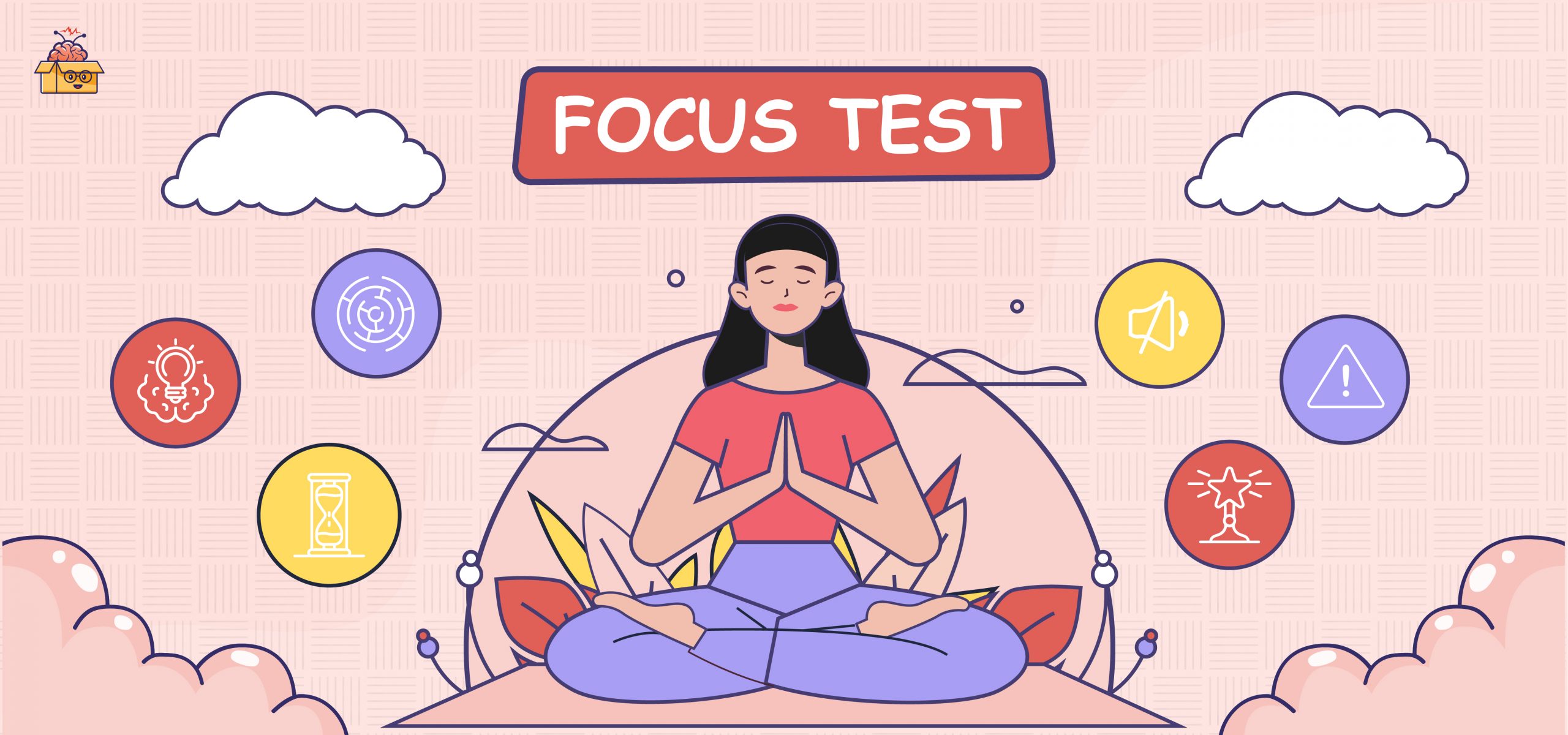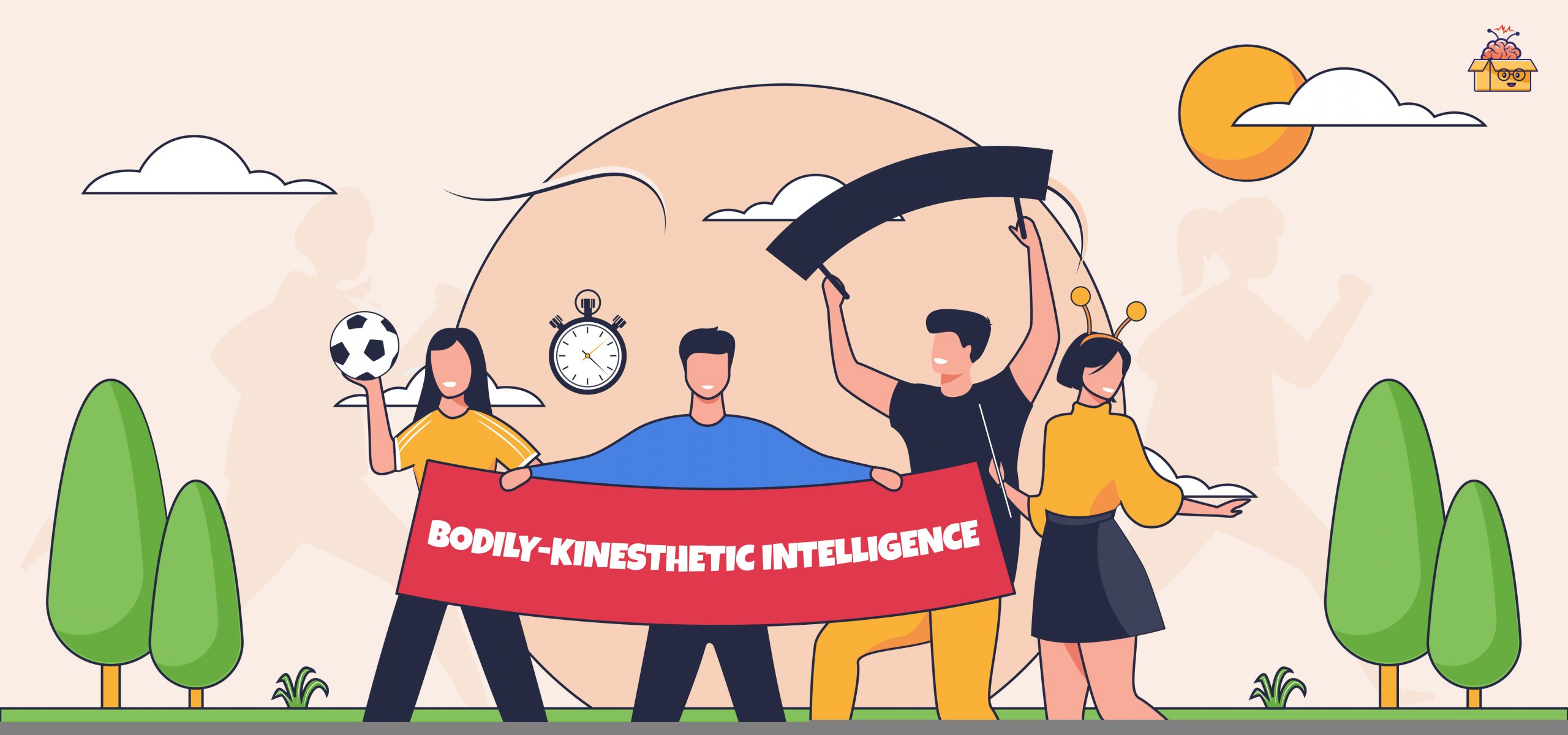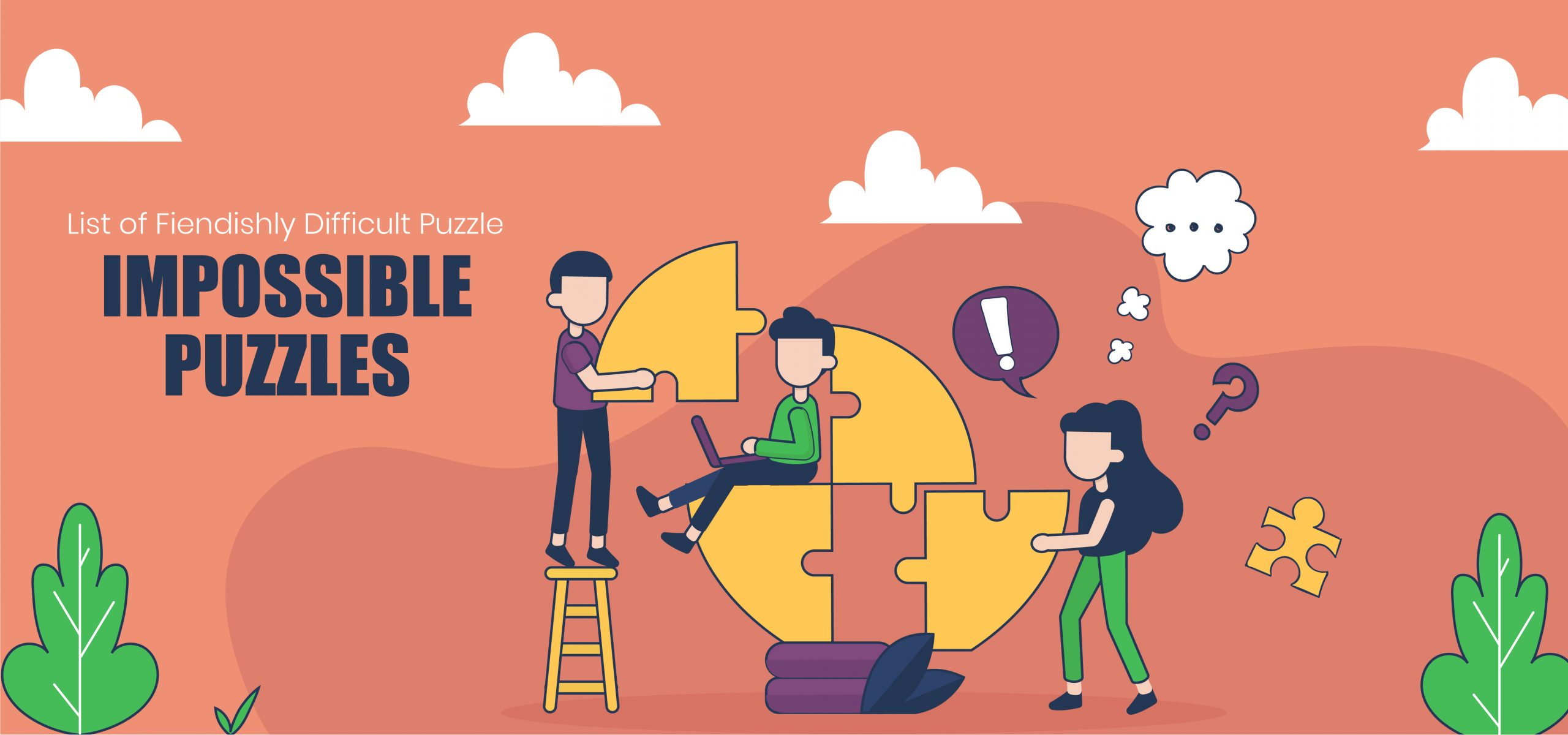-
Focus Test – All About Measuring Attention and Focusing Skills

Test your focusing abilities with a quick focus test, a self-assessment to understand your focusing habits, and practical tips to improve them.
Frequent digital distractions — the screens and notification dings — can decline your IQ by 10 points. How much damage is that you ask? Well, that’s twice the impact your brain endures than that of marijuana.
Now, by no means I want to rub salt in your wound — the gnawing issue of declining productivity and focus, but instead, I want to make you aware of the current state of fragmented attention that’s eroding our focus.
And this article is all bout it. We’ll go through a quick focus test, help you understand how your brain focuses, and some tips on how to improve focus.
Understanding Focus and How Our Brain Works
To put it simply, focusing is the ability to pay attention to one thing over others for a period of time.
Every moment our brain is bombarded with multiple sensory information from the environment that grabs our attention. Take the example of working in an office. When you are sitting on your desk doing a task, you are attending several stimuli like the information on the screen, colleagues chatting in the background, the squealing mobile notification, etc.
But amid all these when you tune out the distractions and attend tasks on hand and sustain it over a period of time, that’s the ability to focus.
During this, selective attention helps you focus on a particular task by blocking the distractions and irrelevant information from your surroundings. While sustained attention helps you maintain this focus over a period of time. Both enabling you to achieve mental focus.
Focus Test – Assessing Your Focusing and Concentration Abilities
1. Simple Self Assessment Focus Test
You might already have an idea of your focus and concentration abilities based on your day-to-day work. And you can test how strong your focusing abilities are by understanding your habits and daily work pattern. Here, read these statements and evaluate which one resonates more with you.
You have good focusing abilities if…
- You are self-motivated to stay focused on the task, even if you are not interested in it.
- When you set a goal to complete, nothing can stop you.
- You aid yourself with short breaks when your focus slumps and get back to work.
- You plan the task beforehand to complete it.
You need to work on focusing skills if…
- You lose track of your work.
- You easily succumb to irrelevant thoughts while focusing.
- You can’t stop yourself from frequently checking your phone.
- Your concentration is easily distracted by people surrounding you.
If the first set of statements resonates more with you, it’s likely that you have some pretty good focusing skills. But, if the second set of statements seems to be familiar, that you might need to work on honing your focusing abilities.
2. The Shot Clock Method for Attention Control
“Shot Clock” method is a quick test and also an exercise that you can do to evaluate and improve your focus. It mainly assesses your attention control skills. As the name suggests it requires you to focus on a shot clock. Here’s how you can do it.
- Take a comfortable seat and close your eyes.
- Take a few deep breaths and imagine you’re in a complete darkroom.
- Visualize a shot clock with a countdown from 24.
- Now start picturing the number “24” counting down — “23”, “22”, “21” all the way to zero.
- While doing it, if any thought wanders in your mind or any other image pops up, restart from 24 again.
This is a really simple focus test that’ll measure how long you can maintain the focus on the timer without any interfering thought.
3. Scientific Focus Tests
Now if you want to take your attention and focus testing on another level, there are certain scientific tests that can you can take. These tests are used for measuring different components of attention as well as IQ. Attention tests such as the Attentional Capacity Test (ACT), Continuous Performance Tests (CPTs), and Tests of Variable Attention (TOVA) are used to measure one’s selective attention, sustained attention, and divided attention.
What Can You Do to Improve Your Focus?
So by now, you might have a good idea about your focusing abilities. Whether you are finding it difficult to focus or just want to further hone your attention skills, these tips will help you with it.
1. Minimize Distractions
Of course, minimizing distraction is easier said than done. It might be difficult to resist checking the notifications or dealing with a frequently interrupting co-worker, but you need to do it to achieve that deep focus and productivity. Keep your phone out of sight, have a word with your colleagues about the interruptions, or change your place. Assigning time for your work and avoiding all distractions during that specific time is a great way to work on your focus.
2. Avoid Multitasking
For many, multitasking seem to be a way to be more productive. But in reality, juggling different tasks is counterproductive.
Although we can work on two things simultaneously, our brain can concentrate on only one thing at a time. While multitasking, our brain switches the focus back and forth from one task to another which interrupts the focus.
In psychology, this interruption is called switching cost that disrupts productivity and performance. As per a study in 2003, after checking an email, it takes 64 seconds to resume the work. And a typical person checks email once every five minutes, which means one minute is wasted every six minutes.
3. Plan and Prioritize
Often we lack focus because we don’t understand what deserves our focus. You may have the ability to concentrate but without a plan and goal in mind, it’s easy to succumb to the smallest distractions.
For example, when you have to meet a deadline — you work relentlessly to get it done. You did it because that was the priority and no matter what interrupted you, you had to meet the deadline.
Similarly, when you plan your tasks and set the deadlines to get them done, you’ll find yourself more focused. Even a simple to-do-list in the morning or night before can give you clarity of mind. You can even use varied techniques for goal setting and time management such as the Eisenhower Box or Ivy Lee’s Method.
4. Meditate
Mediating can drastically improve your ability to focus. It works as a mental workout to give you more control over your thoughts. A study compared the brains of two groups — one who regularly practiced meditation and one who never did it in their life. And without a surprise, the meditating group had more control over thoughts and mental focus. The MRI reports showed that the meditators have better stability in their ventral posteromedial cortex (vPMC) which is the region of the brain linked to wandering thoughts.
5. Utilize Apps and Tools
Ironically, the digital devices that distract us can also be used to aid our focus. Of course, it’s always better to stay unplugged from the devices for some time, but it’s impossible to work without them. This is where some apps may come handy. For example, you can use to-do apps to note down tasks and goals, a Pomodoro timer to divide work in chunks, and website blockers to resist social media. Such tools can give you the push you need to resist distraction and improve productivity.
Before You Go —
If you are looking for a better way to spend time on your phone and work on your brain muscle, SMart Brain is what you need. A RIDICULOUSLY FUN GAME with 200+ levels of logic, math, creative thinking, word puzzles, and more.
Download Now For FREE
 23267
23267







